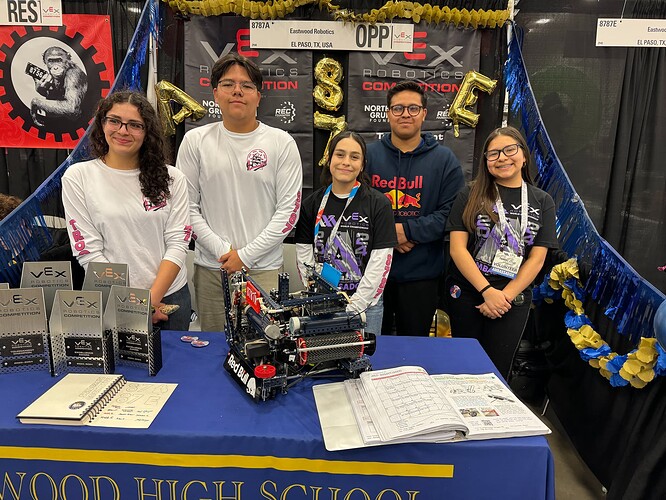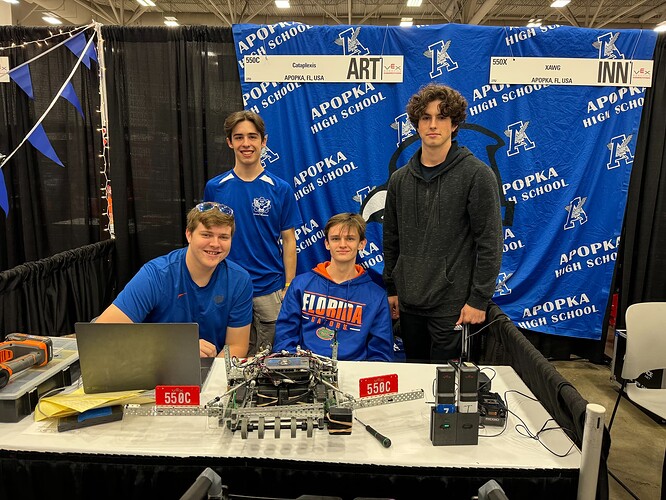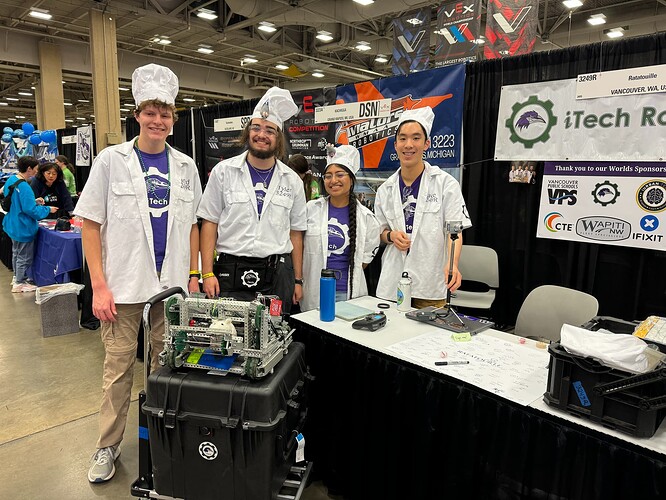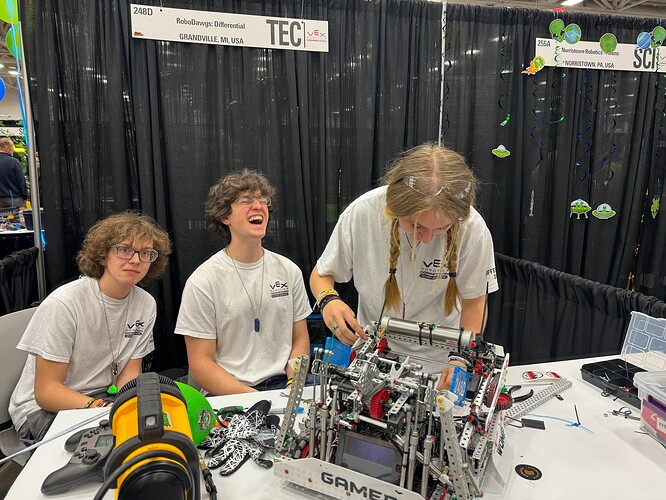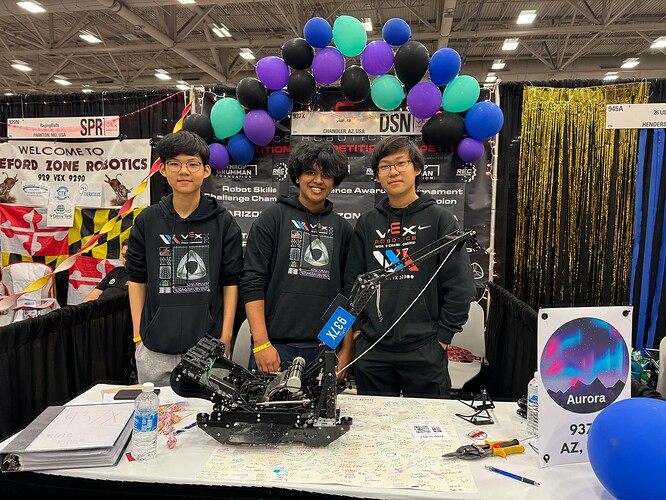Today I had the privilege of getting to meet and talk with teams, coaches, and parents from around the world. It was an absolute joy to see and hear the energy, enthusiasm, and joy that radiated from these students and their supporters!
There were so many notable conversations, but I’ll try to sum up just a few that connected for me throughout the day. One common theme was around the amount of iteration that teams did in both their robot design and code, to get them to Worlds. Several teams talked about major build changes that they made just in the last 7-10 days before getting on a plane or in a car to get to Worlds! Something that stood out to me was the way teams talked about the evolution of their game strategy in relation to their robot design. Here are few examples…
Team 8787A - Eastwood Robotics - worked throughout the season to continually make their robot stronger. They learned from scouting at a lot of signature events, that if they could create a robot that could accomplish multiple strategies, it would be to their alliance’s advantage. They wanted their robot to be able to shoot, intake, and hang, so that they would be able to have a variable strategy depending on who they were partnered with, or defending against. They had a very detailed engineering notebook, and highlighted the role the notebook played in their iterative process. Not only did it help them with building, but with strategy also - so they could complement or defend their partners based on what they’d learned.
Team 550C - Cataplexis - on the other hand, took a very different approach - making conscious choices about the elements of their strategy to focus on, and building accordingly. They decided early on in the season that they were not going to worry about skills this season, and instead wanted to be a match scoring robot. So they learned quickly that the best way to do that was to be fast! So they went through about 5 “major” iterations to make their robot as small, light, and fast as possible so that they could maximize their scoring and descoring of Triballs during the match. Late in the season they added ‘wings’ to their robot to help them move more objects even more efficiently, and ‘sweep’ the Field or a goal.
Team 3249R - Ratatoiulle - took the exact opposite approach – choosing to make their robot bigger, heavier, and stronger than others on the Field. Slow and steady wins the race for this team! Unlike the small, fast robots - their robot is intentionally designed to be able to methodically move a lot of Triballs, and also to push other robots out of the way because of its size and strength. They talked about how they wanted their robot to “out-torque” its opponents. They felt like this unique strategy also set them apart from the other teams and helped pave their way to Worlds. One of the most interesting components of the build was that they had two motors that powered the drivetrain, and then shifted to power their lift mechanism for the endgame, so that they could lift their heavy robot to an elevation. They’re continuing to work on the elevation component - having just redesigned their current lift in the last week!
While the strategies and robots were vastly different - the drive to learn, the camaraderie and collaboration, and the creativity and joy were common threads in these teams, and all those I talked with today. I can’t wait to see these teams in action in more matches, and to hear more about their approaches to the game, robotics, and to learning.
